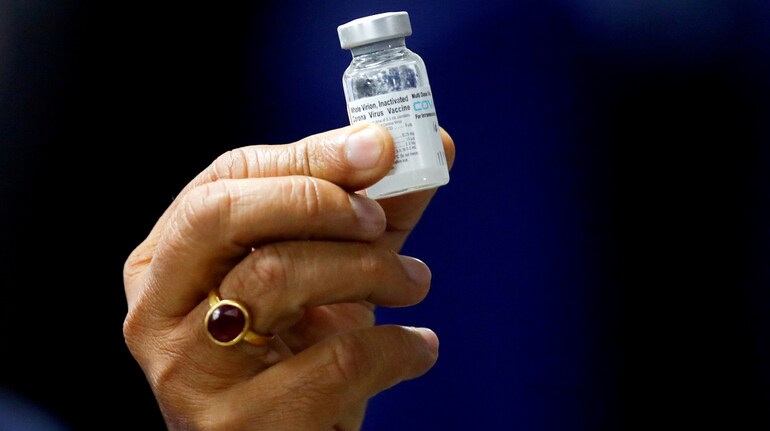



The Indian Council of Medical Research Director General Dr Rajiv Bahl on Monday criticised a recently published study on the long-term safety analysis of the Covaxin in adults and adolescents for its poor methodology and design, and clarified the article misleadingly and erroneously ”acknowledges” ICMR.
Dr Bahl said the study had no control arm of unvaccinated individuals for comparing the rates of events between the vaccinated and unvaccinated groups. Hence, the reported events in the study cannot be linked or attributed to COVID-19 vaccination. The ICMR is not associated with the study and has not provided any financial or technical support for the research, Dr Bahl said.
The ICMR is not associated with the study and has not provided any financial or technical support for the research, Dr Bahl said. The ICMR DG has written a letter to the authors of the paper and Editor of the journal to immediately remove the acknowledgement to ICMR and publish an erratum.
A research paper, titled ’Long-Term Safety Analysis of the BBVl52 Coronavirus Vaccine in Adolescents and Adults: Findings from a l-Year Prospective Study in North India’ stated that nearly one-third of the 926 participants in the study who received Bharat Biotech’s anti-Covid vaccine Covaxin reported ’adverse events of special interest,’ or AESI.
Dr Bahl said that ICMR was acknowledged for research support without any prior approval of or intimation to ICMR, which is inappropriate and unacceptable. He stated that ICMR cannot be associated with this poorly designed study which purports to present a ”safety analysis” of Covaxin due to several critical flaws.
He said the study does not even provide background rates of observed events in the population, making it impossible to assess the change in incidence of observed events in the post-vaccination period.
Baseline information of study participants is missing. He said the study does not even provide background rates of observed events in the population, making it impossible to assess the change in incidence of observed events in the post-vaccination period. Baseline information of study participants is missing. The study tool used is inconsistent with ’Adverse Events of Special Interest (AESI)’ as defined in the reference provided in the paper for AESI. The method of data collection has a high risk of bias, he said.
The method of data collection has a high risk of bias, he said. Study participants were contacted telephonically one year after vaccination and their responses were recorded without any confirmation with clinical records or by physician examination, he pointed out. Dr Bahl also noted that similar acknowledgements to ICMR have been made in previous papers without permission, raising concerns about the authors’ practices.
”The authors have been urged to immediately rectify the acknowledgment to ICMR and publish an erratum. Additionally, they are asked to address the methodological concerns raised. Failure to do so may prompt ICMR to consider legal and administrative action,” he said.
The Editor has been asked to retract the paper which implicitly makes conclusions on vaccine safety which are not supported by evidence. The Editor has been asked to retract the paper which implicitly makes conclusions on vaccine safety which are not supported by evidence. The study, conducted by researchers from the Banaras Hindu University from January 2022 to August 2023, stated that nearly 50 per cent of 926 study participants in the study complained of infections during the follow-up period, predominated by viral upper respiratory tract infections.
Serious AESI, which included stroke and Guillain-Barre syndrome, were reported in one per cent of individuals, the study, which looked at long-term safety of the BBV152 (Covaxin) vaccine in adolescents and adults, claimed. Serious AESI, which included stroke and Guillain-Barre syndrome, were reported in one per cent of individuals, the study, which looked at long-term safety of the BBV152 (Covaxin) vaccine in adolescents and adults, claimed. The study involved 635 adolescents and 291 adults, who received the BBV152 vaccine.
Discover the latest Business News, Sensex, and Nifty updates. Obtain Personal Finance insights, tax queries, and expert opinions on Moneycontrol or download the Moneycontrol App to stay updated!
Find the best of Al News in one place, specially curated for you every weekend.
Stay on top of the latest tech trends and biggest startup news.